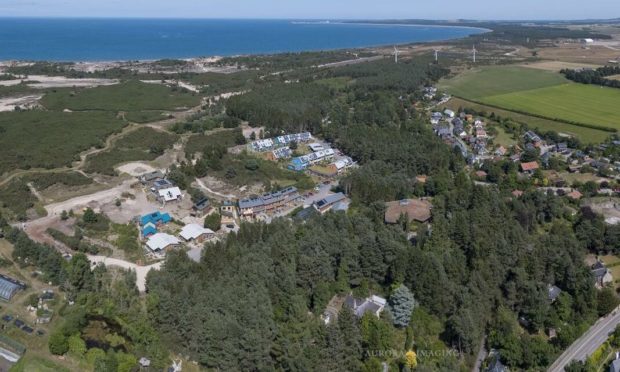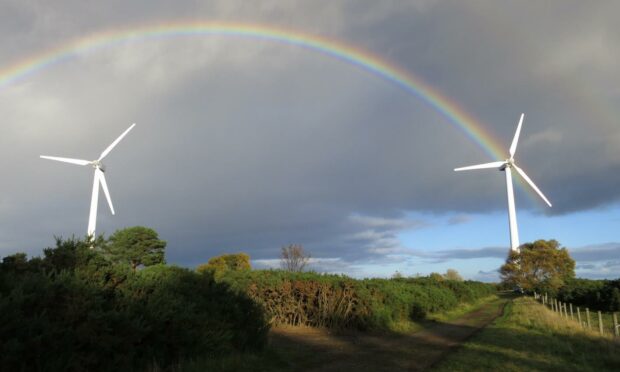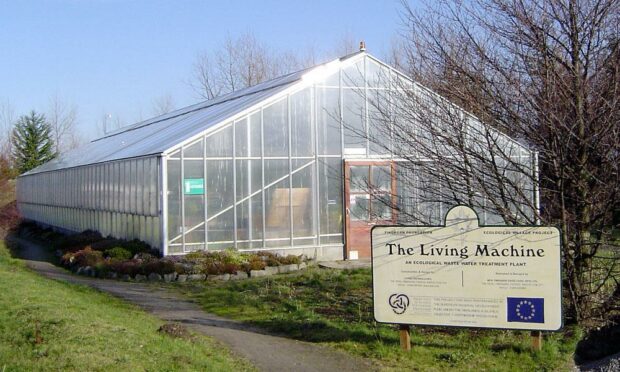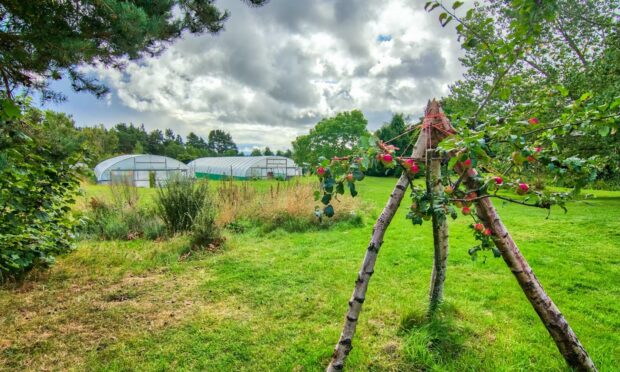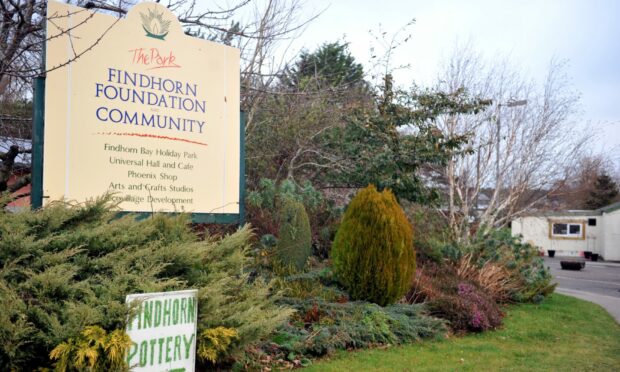The COP26 climate conference may put Glasgow centre stage, but it is also helping shine the spotlight on the Findhorn Foundation.
The Moray charity and eco village is answering double its usual number of inquiries ahead of November’s UN event.
As well as the climate emergency, increased awareness of other contemporary issues, including community life, sustainable living, renewable energy and spirituality, has focused attention on the foundation.
‘COP26 has raised our profile’
Growing interest in wellness, meditation, reconnecting with nature and community collaborations during Covid lockdown have also prompted inquiries from groups, individuals and international media.
“Suddenly, everything we offer is topical at the moment,” said Janet Limb, from the foundation’s communications department.
“COP26 being in Glasgow has raised our profile and Covid has highlighted the need for a sense of community.
“Underlying that is a general and growing interest in meditation and getting outdoors to connect with nature.”
The spiritual and environmentally-aware community started in 1962.
Peter and Eileen Caddy and their friend Dorothy Maclean were “guided” to the area where they started what was to become a thriving village.
Eileen received guidance in her meditations from an inner source.
Dorothy also discovered she was able to contact ‘angels’ or ‘devas’, the intelligence energy of plants.
The trio went on to create a productive vegetable garden in a wasteland of sand and gravel.
Eco village started in the 1980s
The phenomenon attracted interest around the world, but also ridicule for the trio initially.
In 1972, the foundation was founded to run educational courses and workshops.
The eco village began in the 1980s to develop connections between the environmental, social, economic and spiritual aspects of life.
Features include ecological houses, a biological wastewater treatment system, biomass boiler, solar water-heating systems and three wind turbines.
Residents grow much of their own food and also run a car share scheme.
The home and energy footprint of the eco village is 22% of the UK national average.
It was a founder member of the Global Ecovillage Network in 1995.
In 1998, the foundation was recognised by the United Nations as a non-government organisation.
The following year it was granted consultative status at the UN.
Pre Covid, the foundation welcomed around 2000 people from 50 countries for residential courses and workshops.
More interest in living in a community
International guests are still unable to attend, but the first residential guests for 18 months recently attended a permaculture design course.
The foundation is hosting ‘Moving Beyond Cop’, from September 14-16 when businesses, charities NGOs and activists will discuss carbon neutral ideas.
“We are a good example of a 20-minute neighbourhood, a scheme the Scottish Government is now promoting, where people can meet their day-to-day needs within a 20-minute walk of their home,” said Janet.
“We have a number of initiatives that people are interested in all on one site.”
She added: “People want to know how to set up a community and an eco-village.
“During lockdown there was a definite move towards getting out of cities where people didn’t know their neighbours and moving to rural areas.
“Many formed groups in their neighbourhoods during the pandemic, or went shopping for others. Some started to grow vegetables.
“There is now more interest in living in some kind of community. They don’t necessarily want to move here, but they see creating a community where they live as the way forward.
“An attraction of Findhorn is the social factor, we do many community activities together.
“There is also the economic side. It is no good living in an eco-village and driving to Inverness for your job, but we have 40 micro-businesses on site.
‘We tend to punch above our weight’
“It’s a thriving community. It’s not just a nice village with solar panels on the roof.”
She said the community attracts a wide range of groups, from schoolchildren to business leaders interested in subjects ranging from sustainable living to meditation techniques.
John Talbott, chairman of the foundation development committee, said the foundation is aligned with many of the UN’s goals on housing, infrastructure, energy and food production.
“We tend to punch above our weight for being a small-scale community on the world stage.
“Certainly we are not a Utopia. We’re not perfect, but we’ve got a lot of things right as well.
“Hopefully we can continue to be a good model for ways to improve human settlements, increase quality of life and also live more in harmony with nature.”
Earlier this year it was revealed that a Hollywood film maker has revived plans to bring the Findhorn Foundation story to the big screen.
Director and producer Ian Merrick first became interested in the community in the 1980s.
While efforts to make his film, The Garden of Angels, have yet to succeed, he is trying to raise money for a new production.
